

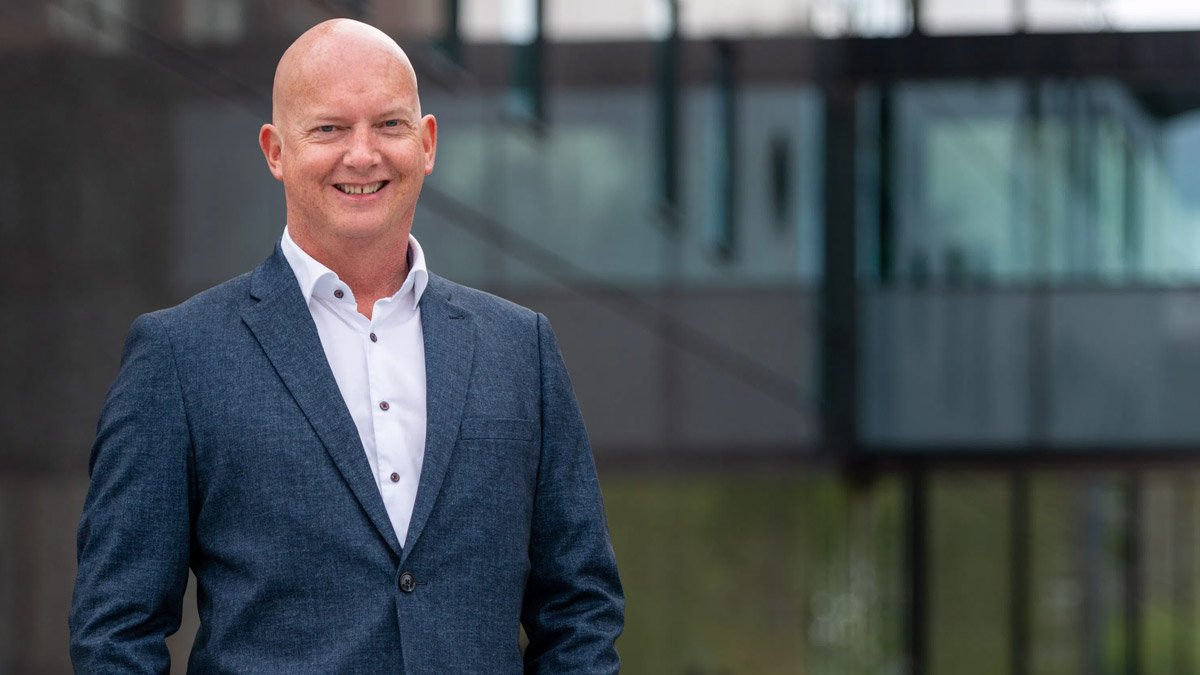
At the age of 19, Frode moved from Oppdal in South Trøndelag to Trondheim to study telematics and data science and went on to receive his degree in MSc in telecommunications. During his third year of studies, he began looking for a part time IT job.
I started looking everywhere from Diplom-Is to Telenor. Then one evening I got a call asking if I wanted to work on a project for Telenor in Grimstad, a tiny seaside town on the coast of southern Norway. This project is what eventually morphed into the company I am running now.
Having never been to Grimstad before, Utel’s future CEO moved down south during the summer of 1997.
After that summer I went back to Trondheim to continue my studies, but still worked part time for the Telenor project that overtime turned into Utel.
After university, followed by a year stint in the military (fittingly in the IT department) Gorseth made the official move to Grimstad in March of 1999.
I worked as a software developer and was the first employee hired on after the two co-founders. The company gradually grew as the whole world eased into the new millennium. Then in 2001, the dot-com bubble burst and we had to fold down. I was the only person that was kept on with a full salary. Even the two co-founders were furloughed.
During this time, Frode took on many roles. He was the support. He was sales. In 2005, he officially took over sale and in 2007, he became the general manager.
If I had my choice, I’m not sure I would take this path to leadership in the same way that it happened to me. I thought I could be a leader and still get to work closely with potential customers and with software development. But the truth is, you can’t push leadership to the side. It needs to be taken seriously.
What is your leadership style?
I have a motto that I stand by. ‘If it’s working at home, then it will work for the company.’ I am a leader who doesn’t make the decisions. I try and let my employees feel like they are leading themselves. I feel including and flexible both in an outside the job.
I also believe that it is important to not downplay who you are. I am a leader and will think positive for my team.
Frode sounds like the ideal boss, though he is the first one to admit that it took years for him to adopt this flexible leadership style.
I am driven by an economic gain. That’s what motivates me. In the beginning, I assumed everyone thought like I did. It took me some time to realize that people work for different incentives.
Can you give an example?
Before, if my team suddenly had a huge project to complete, I really expected everyone would roll up their sleeves and work long hours and straight into the weekend for say, a 50,000 kroner bonus. I received push back right away, and many of my employees let me know they needed their time off. For so long all I could think was, ‘what is wrong with these people?’
Frode recognized that he was out of sync with his team. So, he hired a career coach who helped him find out how he could tackle these issues.
Some need a bonus, and some just want a pat on the back. It was a wake-up call. The coach also taught me the power of giving feedback, both positive and constructive.
What else did your former self struggle with?
A big part of my personality is that I'm always willing to help – the word 'no' is rarely in my vocabulary. I think about my weaknesses and what I could have done better.
And I tended to think that everyone has too much to do. I would rather work five hours extra then ask for help. Both in my personal and professional life, I’m still working on this. I also have huge expectations for myself that I never meet. And I find that I have high expectations for others, and that doesn’t need to be that way.
Back when I was a student, my lung collapsed. I just remember studying and feeling a lot of pain in my chest. This wasn’t due to a remarkable injury. I never found out why it happens except that it occurs in correlation to stressful periods.
Wait a minute, your lung collapsed?
It did. It’s happened four times. The second time it happened, I had been at the office for 52 hours. This injury has impacted me and my health for the worse, but there has been a silver lining.
It’s helped me become a better leader and have more compassion for others. If someone is sick, I want them to go home. I see what can possibly go wrong, and I quickly take on a supportive role when others on my team are down.
In 2021, Utel was purchased by a new investor, Alytic - a venture capital firm which invests to create a positive impact for the society, companies, and teams they engage with.
Alytic brought with them a more long-term perspective. They are both unique and genius because it’s not just ‘another investor.’ They came in with a whole team. Reporting, IT and HR. Alytic helps us out with all of it.
As involved investors, they both push us and guide us. If it was just money, we would have been as in need of long-term planning as we were before. Alytic is the most fitting owner we could have asked for.
You’ve been with the company for 26 years now. If everything disappeared today, what would you do?
I would do more things I love to do. Ski. I want to build a new terrace. Perhaps find a new job. I could go out on my own. Start from scratch to see what I can build. This may sound surprising, but I don’t feel like this company is ‘my baby’ even though I’ve been here since the very start. If it didn’t work out, it wouldn’t help to be sad.
What do you project for the future of Utel?
Currently, we are a team with high competence who works excellent together. Everyone is working a little in each department. I’ve seen the unique possibility with Utel, and what we can offer which is why I’m still here. I know this is going to be a huge success. It’s taken longer than I originally thought, but I’m still certain that it will happen.
Eventually, we’re going to start the hunt for a new CEO. I want to be working more with product development and sales - serving as the link between our customers and the development team by translating customer needs into technological solutions.
About Frode
My ideal vacation involves an active getaway in the Alps – whether it's skiing or snowboarding during winter or hiking in the summer.
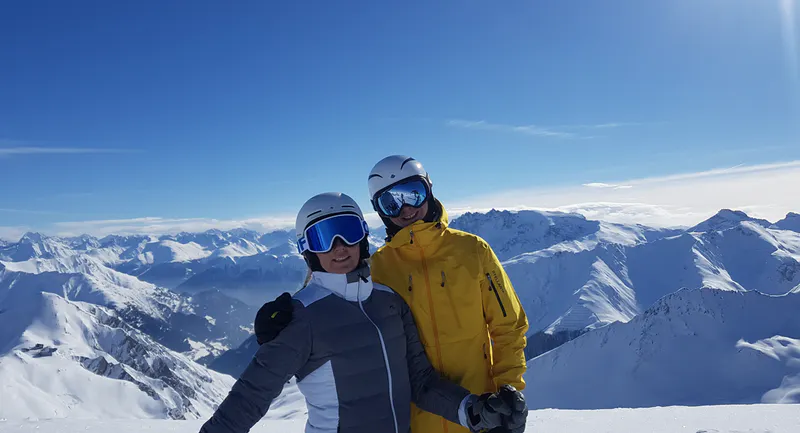
Here in Ischgl on the border of Austria and Switzerland, with my partner Nina Naalsund.
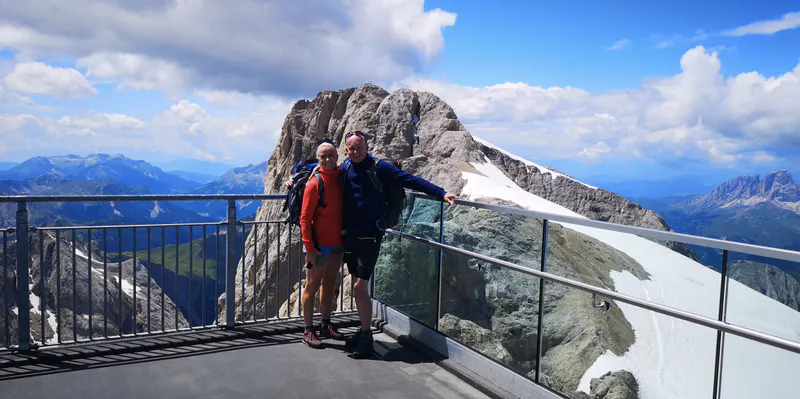
Hiking in the Italian Alps. On top of Punta Rocca (Marmolada, 3265m) after a hike across the Sella mountain plateau from Passo Gardena to Passo Pordoi.
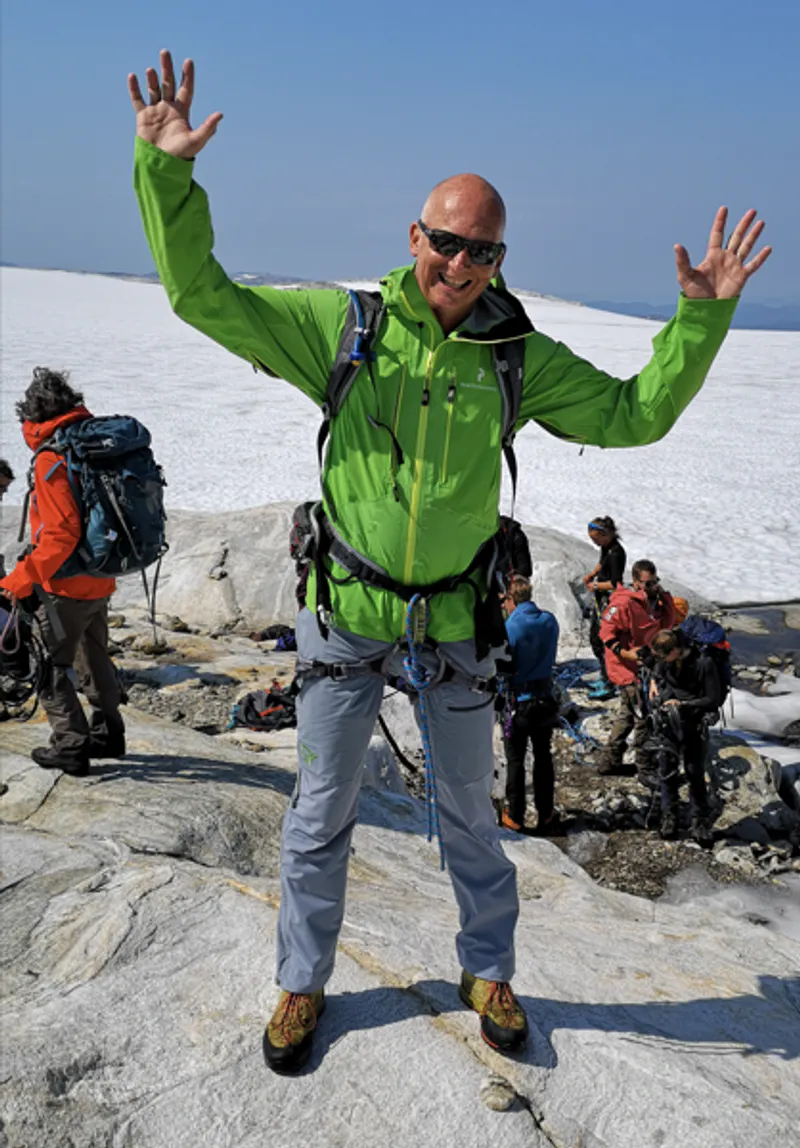
One of my favorite hikes in the Norwegian mountains is the Folgefonna Glacier. Starting from Sunndal, we ascend the "Keiserstien" (Emperor’s Path), traverse the glacier, and descend through Tokheimskaret to Odda. The stunning natural surroundings offer the unique possibility of encountering all four seasons in a single journey.
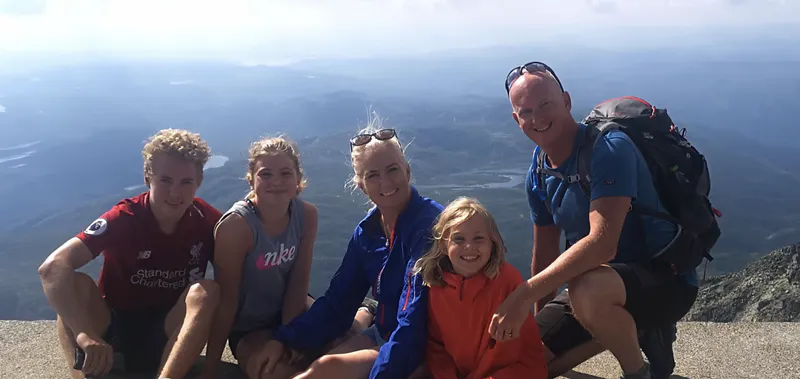
At the summit of Gaustatoppen (1883 meters) with the most cherished ones – my dear Nina and three of my four bonus children, Vebjørn, Nora, and Hedda. Sadly, Veslemøy couldn’t join us on this trip.